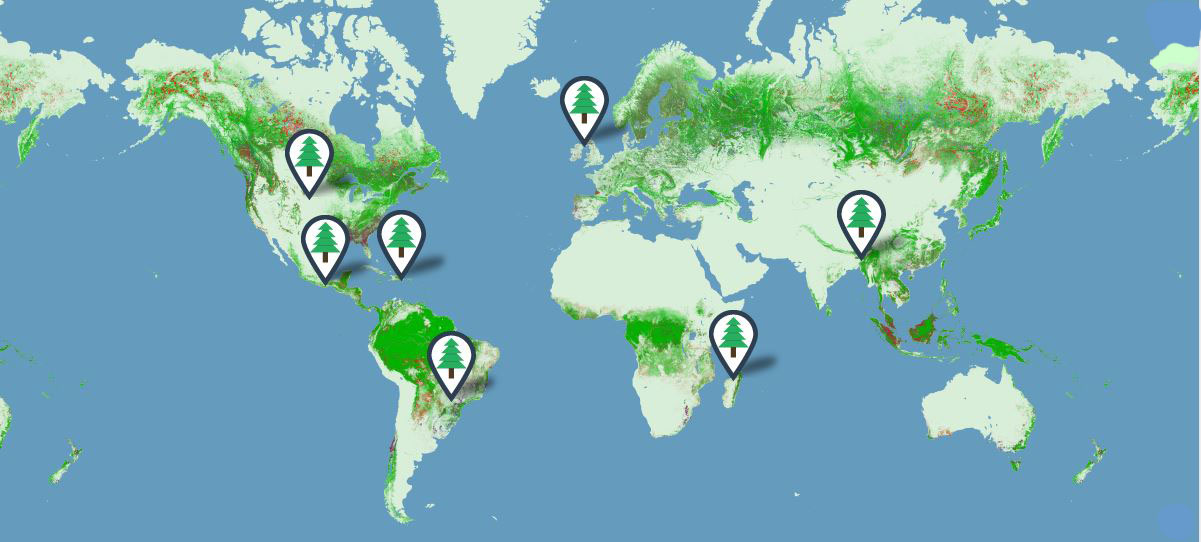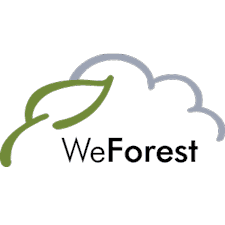 Strategic Approach to Forestry
Strategic Approach to Forestryof about a soccer field every 1.2 seconds when comparing the rates of global reforestation versus deforestation.
There are multiple drivers behind this issue, namely: agricultural development, urban development, and logging for forest-based products which feed the paper, wood, and food industries. Given our global forestry system serves as a significant sponge for carbon sequestration, deforestation is only magnified as part of the emerging conversation on climate change. Through our strategic approach to forestry, we’ve set out to be part of the solution.

This map shows global 12-year annual forest loss and gain from Global Forest Watch in partnership with World Resources Institute. The data is the result of time-series analysis
by University of Maryland Department of Geographical Sciences of 654,178 Landsat 7 ETM+ images in characterizing global forest extent and change from 2000 through 2012.






